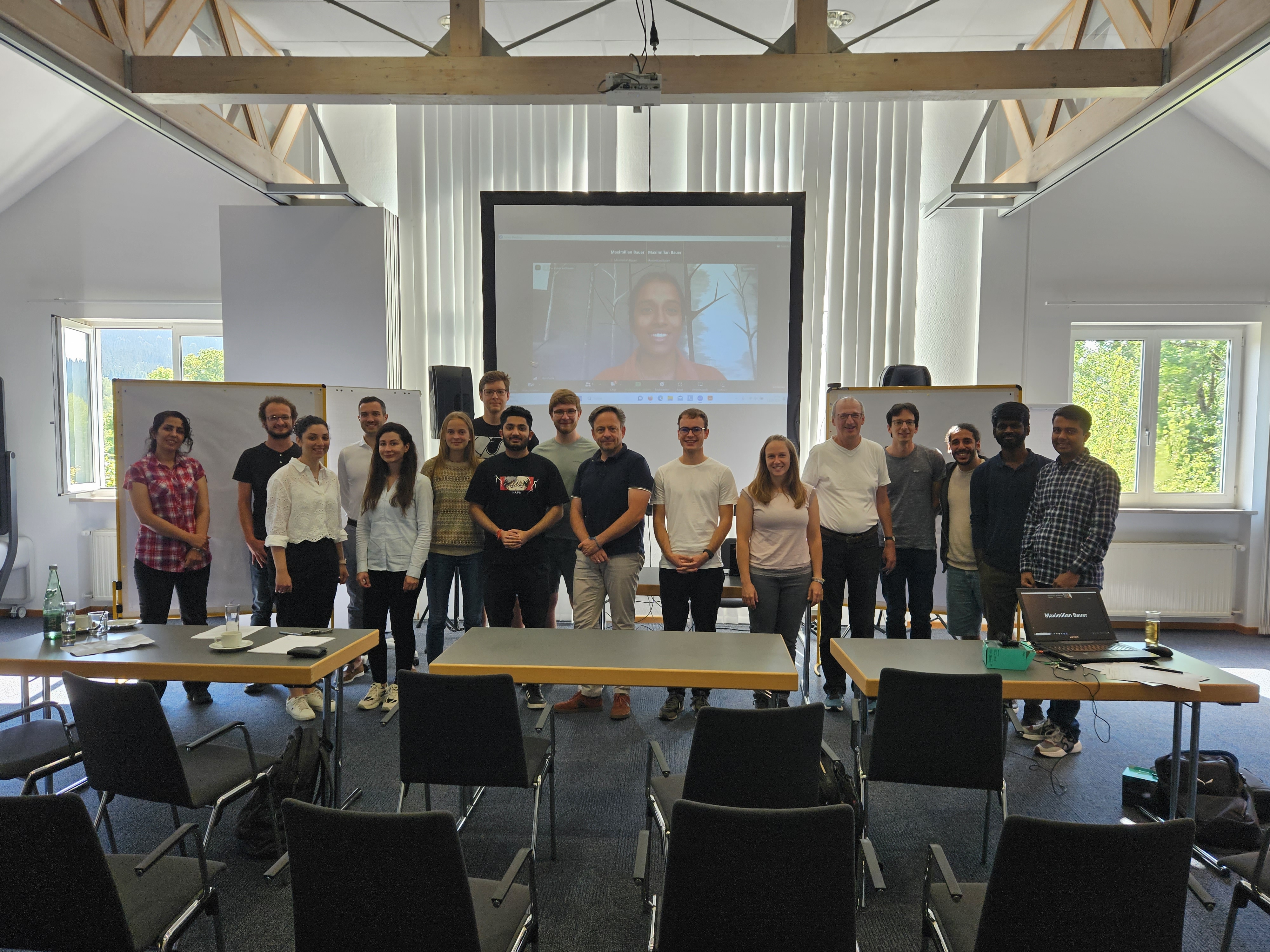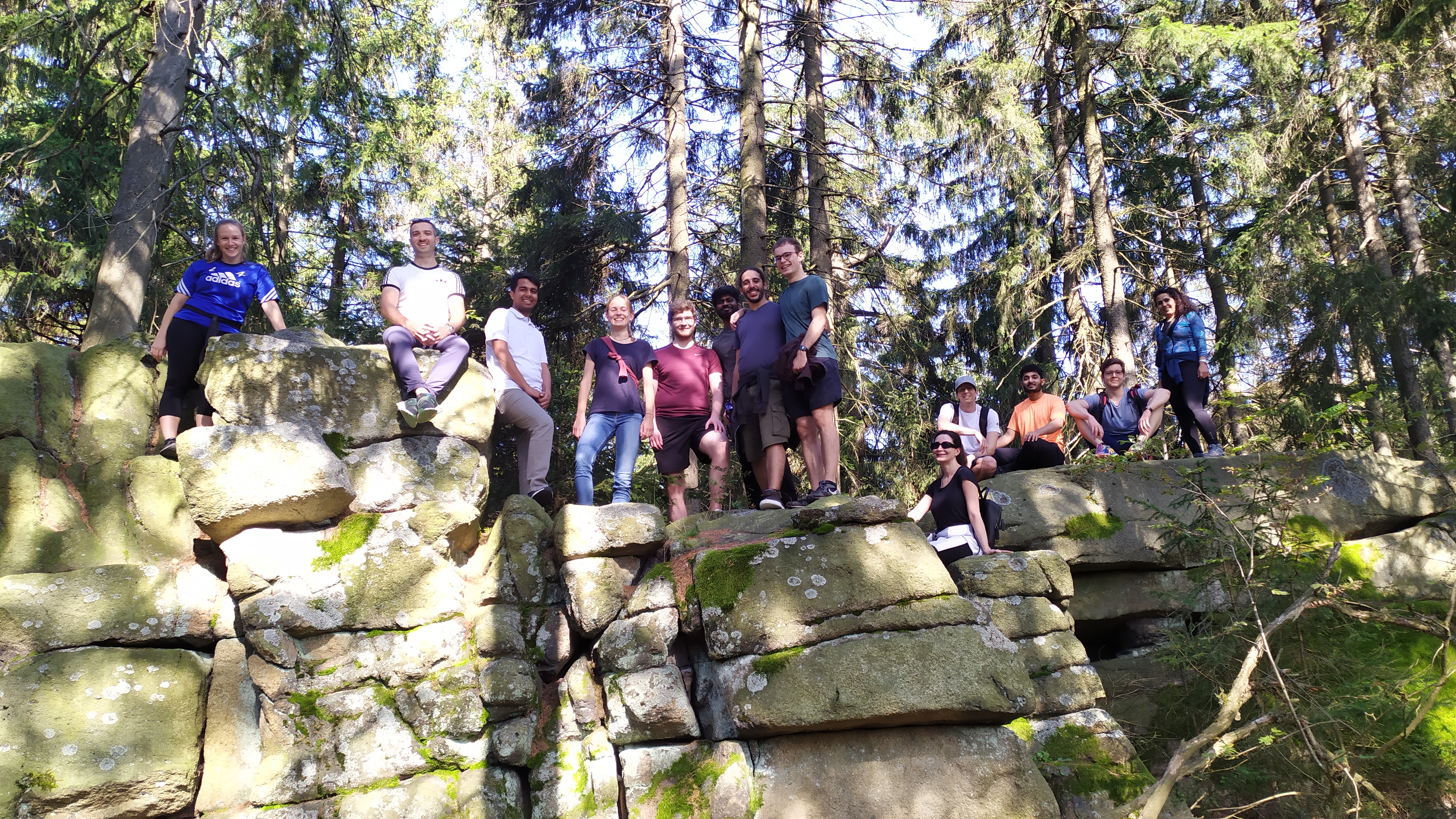5. Modelling Week, 2023
In this seminar, students solved complex problems from industry and business using a wide variety of techniques such as mathematical modeling, numerical methods, and reinforcement learning.
Academic supervisors: Sandra Aziz (Scientific Computing), Maximilian Bauer (Scientific Computing), Markus Büttner (Scientific Computing), Christina Schwarz (Scientific Computing)
Final Presentations: 13.09.2023 to 15.09.2023
Location: Golfhotel Fahrenbach, Tröstau
Participants: 11 Students of the Elite master's program Scientific Computing

Group photo of students and supervisors at the conference location
A basic idea of the modeling seminar in the Elite Graduate Program Scientific Computing is the application of the learned knowledge to real problems from industry and business. This allows students to network with companies at an early stage and get a taste of how industry works. One of the cooperation partners came to the final presentations with a special message.
Humanoid robots for everyone?
One day before the final presentations, the company behind the small robot pib (printable intelligent bot) won the Munich Digital Innovation Award. The idea of the project pib is to offer a broad user group access to humanoid robots in the spirit of open source. The euphoria on arrival was correspondingly high. The students were also delighted to see the robot live and in action.
The project for a group of students consisted of teaching pib to play a game in which the aim was to throw a small bag filled with granules or corn onto a raised platform.
AI in physical simulations
Alongside robotics, artificial intelligence is another trending topic that is playing an increasingly important role in everyday life. The so-called PINNs (Physics Informed Neural Networks) represent a method from this field, with which physical information and conditions can be directly included in the calculation with neural networks when simulating physical phenomena. This approach is anything but new, but recent developments in hardware and software made it possible to use PINNs efficiently. The students were asked to simulate electromagnetic problems with the help of PINNs.
Automation and efficient algorithms
Topics such as efficiency and automation have become an essential part of modern companies. On the one hand, companies are always striving to automate their processes, for example in quality control, and to avoid manual intervention in the process. On the other hand, the algorithms used should also run efficiently and robustly. From the point of view of mathematicians or programmers, this is not always so easy to implement. For example, a group of students had to come up with a new algorithmic and mathematical approach to automatically compare production parts for errors with their computer design.

Hiking tour in the Fichtelgebirge near the Ochsenkopf.

